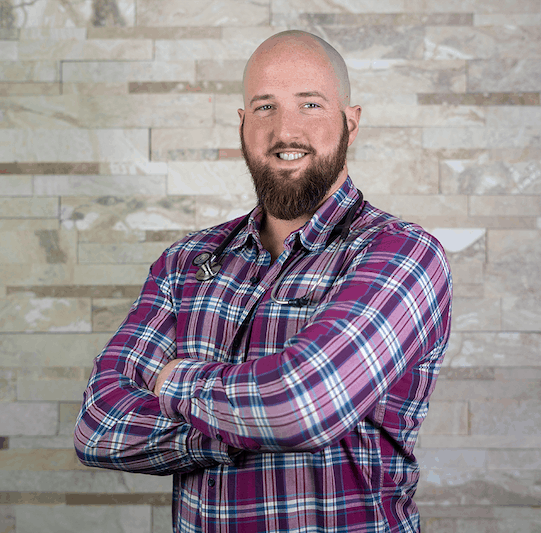Welcome to Fullscript’s integrative medicine education series. Discover how integrative medicine improves patient outcomes and why it’s being adopted by forward-thinking practitioners across North America.
As more people turn to alternative forms of medicine to heal what ails them, interest in integrative medicine is gaining interest among patients. According to the National Center for Complementary and Alternative Medicine (NCCAM), at least 38% of adults and 12% of children in America use some form of complementary or integrative medicine. (29) But it’s not just patients. A growing number of doctors are also turning to integrative protocols to enhance their practice. (20) Integrative medicine is becoming so well accepted that many hospitals and clinics throughout North America are implementing it into their care. (13)(15) But that begs the question, is integrative medicine legitimate?

What is integrative medicine anyway?
To answer that question, it’s important to understand what integrative medicine is and isn’t. At its core, integrative medicine is holistic patient-centered care that combines the best of conventional medicine with the best of alternative protocols. It isn’t a system based on unproven or unsafe practices.
The American Board of Integrative Medicine and the Consortium of Academic Health Centers for Integrative Medicine define integrative medicine as a type of care that:
- Emphasizes the partnership between physician and patient
- Focuses on the whole person, not just symptoms or specific body parts
- Uses evidence-based protocols
- Makes use of all appropriate therapeutic tools to help the patient achieve optimal health (1)
Did you know? Hospital patients who receive integrative medical care are more likely to experience less pain during their stay. This has been shown to reduce hospital costs for patients by an average of 4%. (12)
Ready to start delivering better patient care?

Integrative medicine vs. alternative medicine
People often used the terms integrative (or complementary) medicine and alternative medicine interchangeably. But they aren’t the same. Alternative medicine encompasses an array of non-mainstream healing protocols such as acupuncture, herbal remedies, homeopathy, and mind-body medicine—practices which are often rooted in centuries-old tradition. (22) Acupuncturists, naturopaths, herbalists, and other alternative practitioners often use these modalities as a replacement for conventional care. (36)
On the other hand, integrative medicine doctors employ both conventional and alternative medicine to treat their patients. Practitioners look beyond symptoms and test results to consider factors such as a patient’s lifestyle, environment, and belief system, as well as their emotional and mental well-being. (13) This approach gives the practitioner a better sense of the whole person and may help them identify any underlying or contributing factors that need to be addressed. From there, an integrative medicine doctor has a wealth of tools at their disposal—from pharmaceuticals and surgery to herbs and mind-body activities like meditation—to help their patients achieve optimal health.

Does integrative medicine really work?
A growing number of studies have found that integrative medicine is effective for treating a number of health problems. These include:
- Anxiety and depression (6)(25)
- Arthritis (30)
- Autoimmune conditions (17)(40)
- Chronic pain (24)
- Cognitive issues (18)(35)
- Fibromyalgia (8)
- Headache (7)
- Heart disease (23)(26)
- Irritable bowel syndrome (39)
- Osteoporosis (37)
- Post-surgery healing (34)
- Type 2 diabetes (14)
Integrative medicine not only helps improve or alleviate the obvious symptoms and markers for a number of conditions, it may also benefit your health on a genetic level. Emerging evidence suggests that some alternative protocols can upregulate, or “turn on,” health-promoting genes and downregulate, or “turn off,” genes that can contribute to disease. For example, one microarray experiment that appeared in the journal Medicina found that people who engaged in Transcendental Meditation experienced a downregulation of 49 genes related to inflammation and an upregulation of 151 genes associated with improved immunity. (38)
Other studies report that the genes can also be beneficially upregulated with other tools often employed by integrative physicians. This is especially true for diet and dietary or herbal supplementation. (9)(16) Employing these nontraditional tools has been shown to improve some chronic conditions like cardiovascular disease, obesity, and type 2 diabetes in ways that may not be achieved by conventional medicine alone. (21)
Is integrative medicine regulated?
Integrative medicine practitioners are medical doctors (MDs) and osteopathic physicians (ODs). As such, they are eligible for board certification by the American Board of Integrative Medicine or the American Association Board of Physician Specialties in the United States. (3)(4)(32) In Canada, practitioners can become board certified by the Royal College of Physicians and Surgeons of Canada. (33)(2) They can also be subject to the ethics of the American Medical Association. (5)
In addition, integrative MDs and DOs are licensed by the medical board of the state(s) where they are practicing. (19) DOs can also be licensed based on acceptance of a certificate issued by the National Board of Osteopathic Medical Examiners upon completion of a rigorous series of exams. (28)
Is integrative medicine covered by insurance?
Insurance may partially cover certain aspects of integrative medicine such as acupuncture or chiropractic care. (27) If you’re thinking about seeing an integrative medicine doctor, the National Center for Complementary and Integrative Health suggests asking your insurance company the following questions:
- Is this complementary or integrative approach covered for my health condition?
- Does my care need to be preapproved?
- Do I need a referral?
- Does coverage require seeing a practitioner in the network?
- Do I have coverage if I go out-of-network?
- Are there any limits and requirements on the number of visits or the amount I will pay?
- How much do I have to pay out-of-pocket? (31)
It’s also wise to ask your provider if they take your specific insurance and if so, if they directly bill your insurance company.

Are there any risks to integrative medicine?
Because integrative care relies on evidence-based practices, the risk is similar to conventional care. (10) That said, many people use both conventional and integrative medicine concurrently. In that scenario, it’s important to ensure that each care provider is aware of the treatments provided by the other. This can reduce the risk of drug-supplement interactions or treatment contraindications.
For patients exclusively engaging in integrative medical treatment, it’s important to understand that treatment plans can be more complex than those used in mainstream medicine. This is because an integrative plan often includes multiple modalities. (11) For instance, a treatment plan may include drugs, supplements, chiropractic care, and dietary changes.
Did you know? Similar to conventional medicine, the success and safety of integrative medicine relies on a patient’s adherence to the lifestyle changes, drug or supplement regimen, and other treatments.
The bottom line
Integrative medicine is a marriage of both conventional and alternative medicine to optimize patient care. An integrative medicine practitioner takes the whole patient into account when developing a treatment plan and typically considers the patient as a partner in their care. This approach can give hope to patients with hard-to-treat conditions while encouraging all patients to take an active role in their own healthcare and outcomes.
Ready to start delivering better patient care?

- American Board of Physician Specialities. Integrative medicine defined. http://www.abpsus.org/integrative-medicine-defined/
- American Board of Integrative Medicine (ABOIM). American Board of Physician Specialities. https://www.abpsus.org/specializations/integrative-medicine/#primary/
- American Board of Physician Specialties. Integrative medicine board certification eligibility requirements. https://www.abpsus.org/integrative-medicine-requirements/
- American Board of Physician Specialties. What is the American Board of Integrative Medicine? https://www.abpsus.org/aboim/
- American Medical Association. AMA membership eligibility. https://www.ama-assn.org/member-benefits/member-eligibility-dues/ama-membership-eligibility
- Amorim, D., Amado, J., Brito, I., Costeira, C., Amorim, N., & Machado, J. (2018). Integrative medicine in anxiety disorders. Complementary Therapies in Clinical Practice, 31, 215-219.
- Anheyer, D., Klose, P., Lauche, R., Saha, F.J., & Cramer, H. (2020). Yoga for treating headaches: A systematic review and meta-analysis. Journal of General Internal Medicine, 35(3), 846–854.
- Boehm, K., Raak, C., Cramer, H., Lauche, R., & Ostermann, T. (2014). Homeopathy in the treatment of fibromyalgia–a comprehensive literature-review and meta-analysis. Complementary Therapies in Medicine, 22(4):731-742.
- Choi, S.W. & Friso, S. (2010). Epigenetics: A new bridge between nutrition and health. Advances in Nutrition (Bethesda, Md.), 1(1), 8–16.
- Curtis, P. & Gaylord S. (2005). Safety issues in the interaction of conventional, complementary, and alternative health care. Complementary Health Practice Review, 10(1), 3-31.
- Dodds, S.E., Herman, P.M., Sechrest, L., Abraham, I., Logue, M.D., Grizzle, A.L., Rehfeld, R.A., … Maizes, V.H. (2013). When a whole practice model is the intervention: developing fidelity evaluation components using program theory-driven science for an integrative medicine primary care clinic. Evidence-based Complementary and Alternative Medicine: eCAM, 2013, 652047.
- Dusek, J.A., Griffin, K.H., Finch, M.D., Rivard, R.L., & Watson, D. (2018). Cost savings from reducing pain through the delivery of integrative medicine program to hospitalized patients. Journal of Alternative and Complementary Medicine (New York, N.Y.), 24(6), 557–563.
- Gannotta, R., Malik, S., Chan, A. Y., Urgun, K., Hsu, F., & Vadera, S. (2018). Integrative medicine as a vital component of patient care. Cureus, 10(8), e3098.
- Grise, D.E., McAllister, H.M., & Langland, J. (2015). Improved clinical outcomes of patients with type 2 diabetes mellitus utilizing integrative medicine: a case report. Global Advances in Health and Medicine, 4(3), 57–61.
- Horrigan, B., Lewis, S., Abrams, D.I., & Pechura, C. (2012). Integrative medicine in America—How integrative medicine Is being practiced in clinical centers across the United States. Global Advances in Health and Medicine, 1(3), 18–94.
- Hsieh, H.Y., Chiu, P.H., & Wang, S.C. (2011). Epigenetics in traditional Chinese pharmacy: a bioinformatic study at pharmacopoeia scale. Evidence-based Complementary and Alternative Medicine : eCAM, 2011, 816714.
- Impellizzeri, F., Leonardi, S., Latella, D., Maggio, M.G., Foti Cuzzola, M., Russo, M., Sessa, E., … Calabrò, R.S. (2020). An integrative cognitive rehabilitation using neurologic music therapy in multiple sclerosis: A pilot study. Medicine, 99(4), e18866.
- Innes, K.E., Selfe, T.K., Khalsa, D.S., & Kandati, S. (2017). Meditation and music improve memory and cognitive function in adults with subjective cognitive decline: A pilot randomized controlled trial. Journal of Alzheimer’s Disease: JAD, 56(3), 899–916.
- Institute for Natural Medicine. Characteristics of health care professions: Differentiating between ND, Integrative MD, DO, and DC providers. https://naturemed.org/faq/characteristics-of-healthcare-professions-differentiating-between-nd-integrative-md-do-and-dc-providers/
- Integrative physician market landscape 2017. (2017). Pure Branding. https://www.purebranding.com/integrative-physician-market-landscape-2017/
- Kanherkar, R.R., Stair, S.E., Bhatia-Dey, N., Mills, P.J., Chopra, D., & Csoka, A.B. (2017). Epigenetic mechanisms of integrative medicine. Evidence-based Complementary and Alternative Medicine : eCAM, 2017, 4365429.
- Kisling, L.A. & Stiegmann, R.A. (2022). Alternative Medicine. In: StatPearls . Treasure Island (FL): StatPearls Publishing. https://www.ncbi.nlm.nih.gov/books/NBK538520/
- Lan, J., Zhao, Y., Dong, F., Yan, Z., Zheng, W., Fan, J., & Sun, G. (2015). Meta-analysis of the effect and safety of berberine in the treatment of type 2 diabetes mellitus, hyperlipemia and hypertension. Journal of Ethnopharmacology, 161:69-81.
- Lin YC, Wan L, & Jamison RN. (2017). Using integrative medicine in pain management: An evaluation of current evidence. Anesthesia and Analgesics. 125(6):2081-2093.
- Lopresti, A.L., Smith, S.J., Metse, A.P., Foster, T., & Drummond, P.D. (2020). The feasibility and efficacy of a brief integrative treatment for adults with depression and/or anxiety: A randomized controlled trial. Journal of Evidence-based Integrative Medicine, 25, 2515690X20937997.
- Mehta D. Integrative medicine and cardiovascular disorders. (2017). Primary Care, 44(2):351-367.
- Nahin, R.L., Barnes, P.M. & Stussman, B.J. (2016). Insurance coverage for complementary health approaches among adult users: United States, 2002 and 2012. NCHS Data Brief, 235.
- National Board of Osteopathic Medical Examiners. https://www.nbome.org/who-we-are/
- National Center for Complementary and Alternative Medicine (NCCAM), National Institutes of Health. (2008). According to a new government survey, 38 percent of adults and 12 percent of children use complementary and alternative medicine.https://www.nih.gov/news-events/news-releases/according-new-government-survey-38-percent-adults-12-percent-children-use-complementary-alternative-medicine
- National Center for Complementary and Integrative Health. (2022). Arthritis and Complementary Health Approaches: What the Science Says. NCCIH Clinical Digest.https://www.nccih.nih.gov/health/providers/digest/arthritis-and-complementary-health-approaches-science
- National Center for Complementary and Integrative Health. (2016). Paying for complementary and integrative health approaches. https://www.nccih.nih.gov/health/paying-for-complementary-and-integrative-health-approaches
- Riley, D.S., Anderson, R., Blair, J.C., Crouch, S., Meeker, W., Shannon, S., Sudak, N., … Low Dog, T. (2016). The Academy of Integrative Health and Medicine and the evolution of integrative medicine practice, education, and fellowships. Integrative Medicine (Encinitas, Calif.), 15(1), 38–41.
- Royal College of Physicians and Surgeons of Canada. https://www.royalcollege.ca/rcsite/home-e?search_field=integrative
- Ruan, Q.Z., Chen, A.D., Tran, B., Epstein, S., Fukudome, E.Y., Tobias, A.M., Lin, S.J., … Singhal, D. (2019). Integrative medicine in plastic surgery: A systematic review of our literature. Annals of Plastic Surgery, 82(4), 459–468.
- Song, R., Grabowska, W., Park, M., Osypiuk, K., Vergara-Diaz, G.P., Bonato, P., Hausdorff, J.M., … Wayne, P.M. (2017). The impact of Tai Chi and Qigong mind-body exercises on motor and non-motor function and quality of life in Parkinson’s disease: A systematic review and meta-analysis. Parkinsonism & Related Disorders, 41, 3–13.
- Tabish S. A. (2008). Complementary and alternative healthcare: Is it evidence-based? International Journal of Health Sciences, 2(1), V–IX.
- Wattanathorn, J., Somboonporn, W., Sungkamanee, S., Thukummee, W., & Muchimapura, S. (2018). A double-blind placebo-controlled randomized trial evaluating the effect of polyphenol-rich herbal congee on bone turnover markers of the perimenopausal and menopausal women. Oxidative Medicine and Cellular Longevity, 2018, 2091872.
- Wenuganen, S., Walton, K.G., Katta, S., Dalgard, C.L., Sukumar, G., Starr, J., Travis, F.T., … Fagan, J. (2021). Transcriptomics of Long-Term Meditation Practice: Evidence for Prevention or Reversal of Stress Effects Harmful to Health. Medicina (Kaunas, Lithuania), 57(3), 218.
- Wen, Y., Li, J., Long, Q., Yue, C.C., He, B., & Tang, X.G. (2020). The efficacy and safety of probiotics for patients with constipation-predominant irritable bowel syndrome: A systematic review and meta-analysis based on seventeen randomized controlled trials. International Journal of Surgery, 79:111-119.
- Zhu LQ, Liu YH, Huang M, Wei H & Liu Z. (2004). Study on improvement of islet beta cell function in patients with latent autoimmune diabetes mellitus in adults by integrative Chinese and Western medicine. Zhongguo Zhong Xi Yi Jie He Za Zhi, 24(7):581-584.





